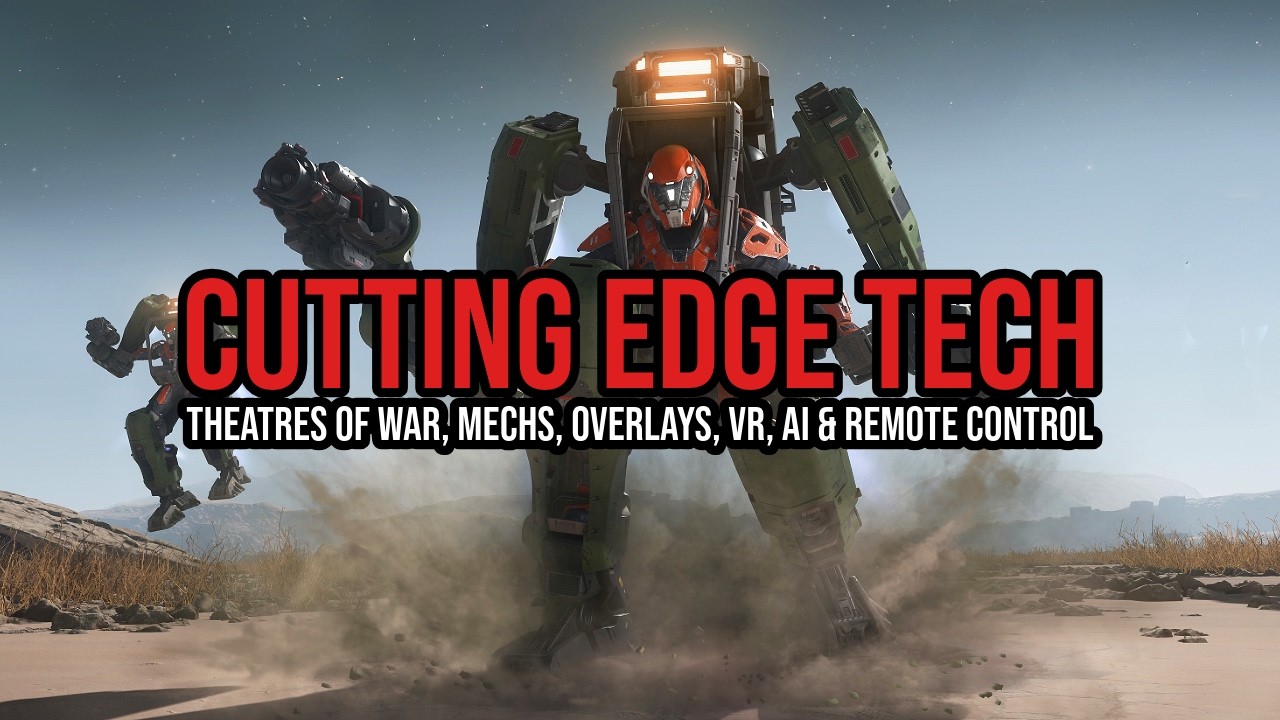In the interview, Sean Tracy, CIG’s Managing Director of Technical Operations, discussed Star Citizen’s highly specialized engine and ongoing tool improvements that support advanced features like dynamic weather and integrated gameplay modes, while emphasizing the company’s focus on innovation driven by Chris Roberts’ vision. He also highlighted future prospects including enhanced social integration, AI advancements, VR support, and upcoming technical milestones such as Planet Tech V5, underscoring confidence in the game’s evolving technology and development.
The video covers an interview with Sean Tracy, CIG’s Managing Director of Technical Operations, conducted at the Quantum Vegas 2955 Star Citizen fan event. Sean has been with Star Citizen for over 11 years and oversees the entire technical department, including engines, tools, and networking. He shared insights into the technical development of Star Citizen and Squadron 42, emphasizing the company’s commitment to maintaining cutting-edge technology. Chris Roberts’ passion for technology drives a culture of innovation at CIG, ensuring that the Star Engine and associated tools remain modern and tailored specifically for their game’s needs rather than being generic or licensed out.
Sean discussed how Star Citizen’s engine is highly specialized and fit for purpose, developed over more than a decade to meet the unique demands of the game. While the engine is not planned to be licensed out, some individual tools or tech might be in the future, but the focus remains firmly on game development rather than engine licensing. The team continually updates and improves their tools to increase efficiency and support new features, with recent advances including dynamic weather effects like rain and snow. The German team, particularly engineer Carson Wel, was credited for the impressive cloud and sky systems.
The interview also touched on gameplay elements such as Theaters of War, which has now been integrated into the persistent universe rather than remaining a separate Arena Commander mode. There is potential for a future revival of similar team-based gameplay, but for now, the focus is on expanding these features within the main game. Sean also hinted at future social and organizational integration through a possible Spectrum overlay, allowing players to manage social features and communication seamlessly in and out of the game.
Emerging technologies like VR and AI were discussed as areas of interest but currently not top priorities. The engine supports VR technically but requires further work for full implementation. AI is seen as a major industry disruptor with potential applications in game tools, data management, and NPC interactions, including more natural and lengthy conversations. Sean highlighted the innovative DNA system used for creating realistic and diverse character faces, which remains an area of active development to enhance player customization and NPC believability.
Finally, Sean shared enthusiasm about upcoming technical milestones such as Planet Tech V5, which will bring significant improvements to planet generation and environmental effects. He also mentioned the possibility of remote controls for ships and garage doors, potentially accessible via mobile apps, though no firm plans are currently in place. Overall, Sean expressed confidence in the technical foundation of Star Citizen and Squadron 42, the continuous evolution of their tools, and the exciting future prospects for the game’s technology and gameplay.
